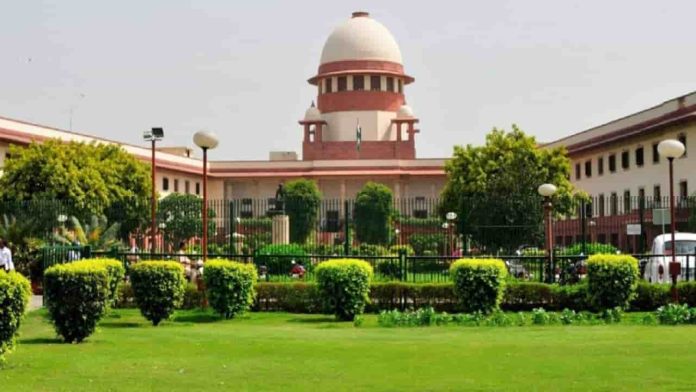The Supreme Court while hearing a matter on whether the sub classification of Scheduled Castes (SCs) and Scheduled Tribes (STs) can provide affirmative action benefits said that the reservation policy should be organic and evolving, not static in nature.
The Centre apprised court that they favoured this sub-classification, as it was a way to achieve the objective of providing reservation to those who have had a history of discrimination for centuries.
A Constitution bench comprising of 7 judges is examining the validity of its 2004 judgment in E V Chinnaiah vs State of Andhra Pradesh, which held that SCs form a homogenous group and there cannot be any sub-division among them.
The bench is headed by Chief Justice of India D Y Chandrachud, and has Justice B R Gavai, Justice Vikram Nath, Justice Bela M Trivedi, Justice Pankaj Mithal, Justice Manoj Misra and Justice Satish Chandra Sharma.
Justice B R Gavai who is member of the heard Senior Advocate Shekhar Naphde, who appeared for Tamil Nadu,and said that he found error in 2004 judgment and said reservation policy must keep pace with “rapidly changing” social dynamics.
Naphde said that anyone who reads the daily newspaper would see that reservation policy must keep pace with the social dynamics,
Justice Gavai remarked, “It should be organic and evolving, not static.”
Centre was represented by Solicitor general Tushar Mehta who agreed that the Government is committed to the declared policy of reservation for backward classes but lack of sub-classification perpetuates the zone of inequality within the reserved category and stops the State from framing appropriate policy in this regard.
The SG said that reservation benefits should be re-distributed rationally.
He added that in order to achieve the objective behind reservations, it is very important to maintain the levels and extent of reservations ensuring its benefit to one it matters.
SG said that the sub-classification of the said benefits is a key measure which goes a long way to achieve the said objective.
SG Mehta said that the aim behind reservations by legitimate state is to support the backward classes who have had a history of discrimination for centuries.
SG added that if the aim of the State and the Constitution is to provide parity, equality of opportunity to all.
He said that enabling of sub-classification would ensure that benefits are extended to persons more in need of the said benefits by carefully apportioning the reserved quota within the reserved class.
Mehta referred to Jarnail Singh vs Lacchmi Narain Gupta ruling of 2018 by Supreme Court stating that amelioration of backward classes cannot be achieved if the only the privileged bag all important things.


